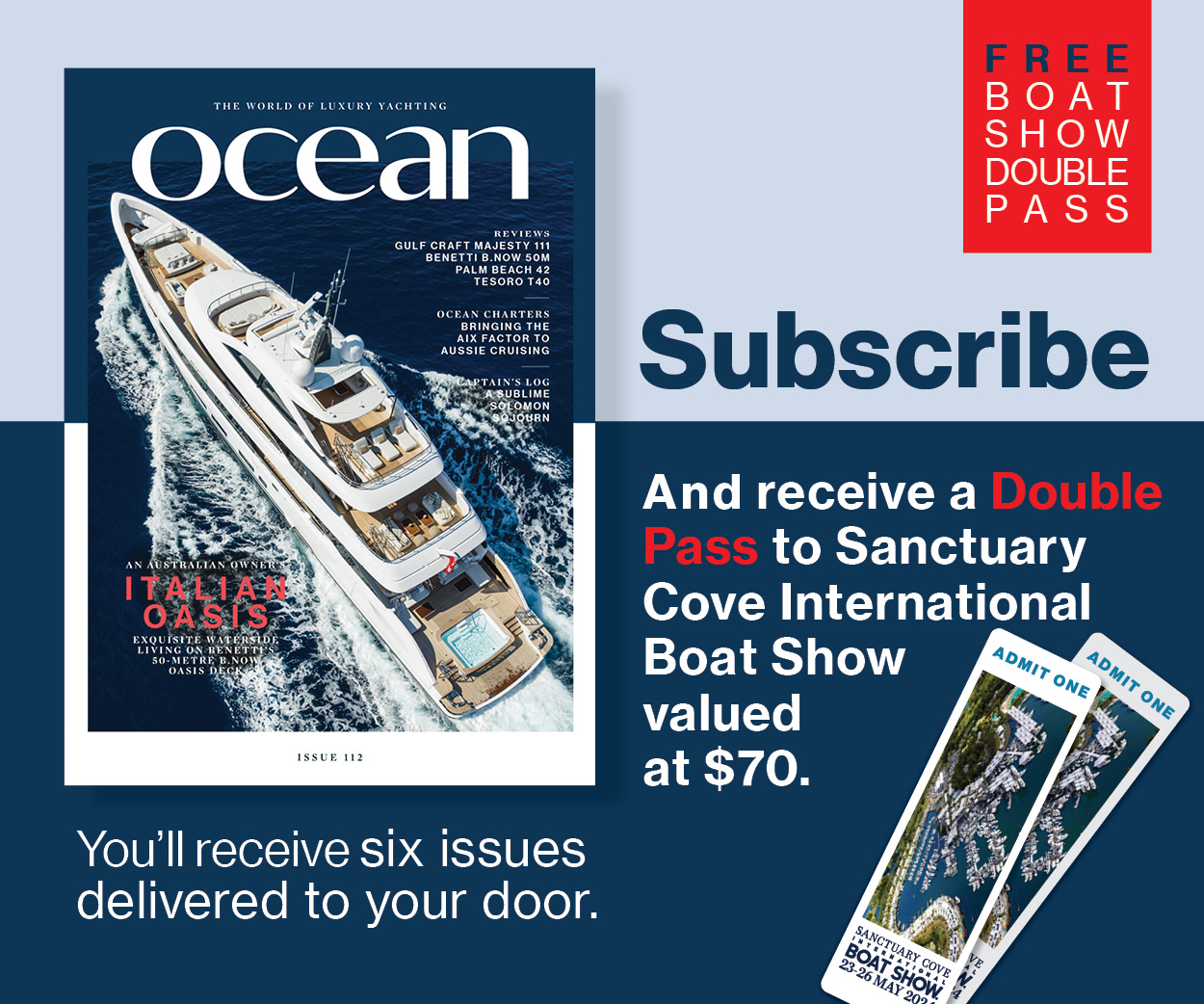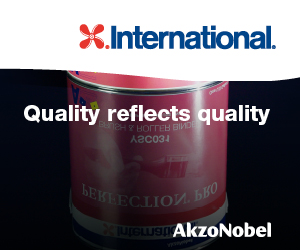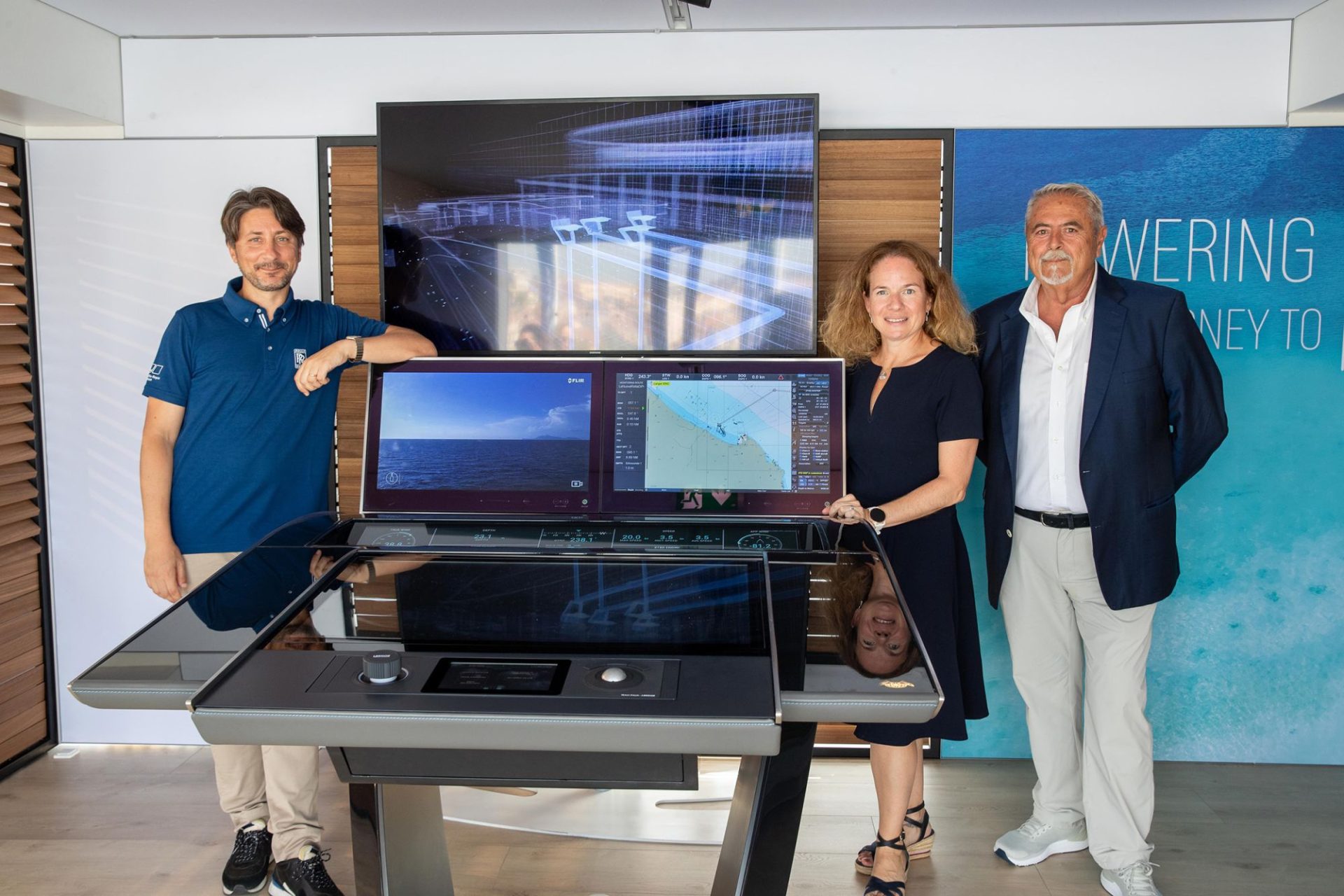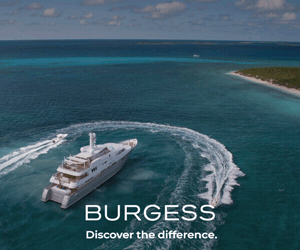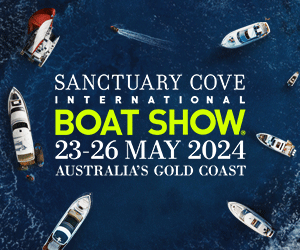Power performance
Rolls-Royce continues to expand its range of integrated mtu propulsion solutions for yachts.
27 September 2023
In line with its Bridge-to-Propeller strategy for maritime applications, the business unit Power Systems of Rolls-Royce will present this expanded Bridge-to-Propeller portfolio at the Monaco Yacht Show 2023.
This includes new bridge and automation solutions from specialist Team Italia Marine, which Rolls-Royce acquired in July 2023.
Based on a new cooperation with ZF, the portfolio will also be expanded to include high-efficiency pod drives.
At the core of the mtu yacht offering is the mtu Series 2000 and 4000 yacht engines, which are now released for operation with renewable diesel (HVO).
The main yacht engines are also available with exhaust aftertreatment systems for IMO III regulated areas. The company is also working on methanol solutions and hybrid propulsion systems.
New fully integrated bridge and automation systems
Safety, environmental protection, performance, reliability and comfort are the most important aspects when operating a yacht.
Denise Kurtulus, Vice President Global Marine at Rolls-Royce Power Systems, said “Using fully integrated systems, we can best meet the different requirements of our customers when operating a vessel. We’re already using artificial intelligence for this purpose, and the trend is increasing.”
A fully integrated bridge is a central point of interaction for the captain, where not only all the data from the propulsion system is collected, but also the operating data from all the ship’s auxiliary and navigation equipment can be collected and the equipment operated.
Nicola Camuffo, Head of the mtu Yacht Competence Center in La Spezia, explained, “In a world where the complexity of onboard systems is increasing due to different customer requirements and new regulations – with hybrid and electric propulsion systems, exhaust after-treatment systems, alternative fuels etc –our integrated bridge represents a perfect infrastructure, providing a single point of access to all information in a structured and efficient way.
“The same infrastructure will host autonomous functions, equipment health management (vessel monitoring systems) from the mtu NautIQ portfolio and other data-driven functions in the future.”
Already today, numerous shipyards for motor yachts between 30 and 100 metres in length rely on integrated bridge and automation solutions from the new Italian subsidiary, especially Italian yacht builders who occupy a prominent position on the international market. The integration of these products into Rolls-Royce’s mtu NautIQ product range will also open up the yacht-building market outside Italy.
Significant synergy effects towards integrated system solutions are expected from the cooperation between the individual divisions within Rolls-Royce Power Systems.
Massimo Minnella, who founded Team Italia together with Daniele Ceccanti, announced, “We will launch innovative products for the next generation of yachts.
“They will have a much wider range of functions in automation and control. At the same time, the comprehensive know-how of the new Italian subsidiary will also be used for other maritime applications, for example for commercial shipping.”
mtu yacht engines approved for sustainable fuels
Rolls-Royce has now approved the main mtu Series 2000 and 4000 engines for yachts for EN15940 synthetic diesel fuels, such as renewable diesel (HVO).
Denise Kurtulus explained, “We see HVO as a very effective sustainable solution because the fuel is already available.
“For the future, we see e-methanol as the most promising marine fuel. With green methanol from renewable energies, CO2-neutral yacht operation is possible. In addition, harmful emissions such as nitrogen oxides and particulates can be significantly reduced.
“Compared to the other sustainable fuels hydrogen, methane and ammonia, methanol has the highest energy density, taking into account the tank system.”
Rolls-Royce is currently developing methanol propulsion solutions for yachts and workboats. Within the publicly funded MeOHmare project, Rolls-Royce is currently focusing on single-fuel technology and will be testing it on the single-cylinder test bed and the full-engine test bed in the coming years.
“We’re also testing dual-fuel solutions, which we see as a useful bridging technology,” said Denise Kurtulus.
New in the portfolio
On the propeller side, Rolls-Royce is expanding its portfolio with fuel-efficient and particularly maneuverable pod propulsion systems. For this purpose, Rolls-Royce is cooperating with ZF and will in future offer propulsion systems based on the ZF Pod 4600 and mtu Series 2000 engines in the power range up to 1,250 kilowatts (1,700 hp).
mtu Hybrid PropulsionPack
Rolls-Royce’s Bridge-to-Propeller portfolio also includes mtu hybrid solutions. Anchoring without climate-damaging exhaust gases and quiet maneuvering in port: the mtu Hybrid PropulsionPack offers a propulsion solution that enables pure battery-electric operation over a certain period of time. The low engine noise and vibrations then provide even more comfort on board.
The mtu Hybrid PropulsionPack integrates the mtu diesel engines with electric propulsion modules, batteries, gearbox, control and monitoring systems and other electronic components. To ensure the optimum propulsion solution for each type of ship, Rolls-Royce offers a modular kit with standardised components.


